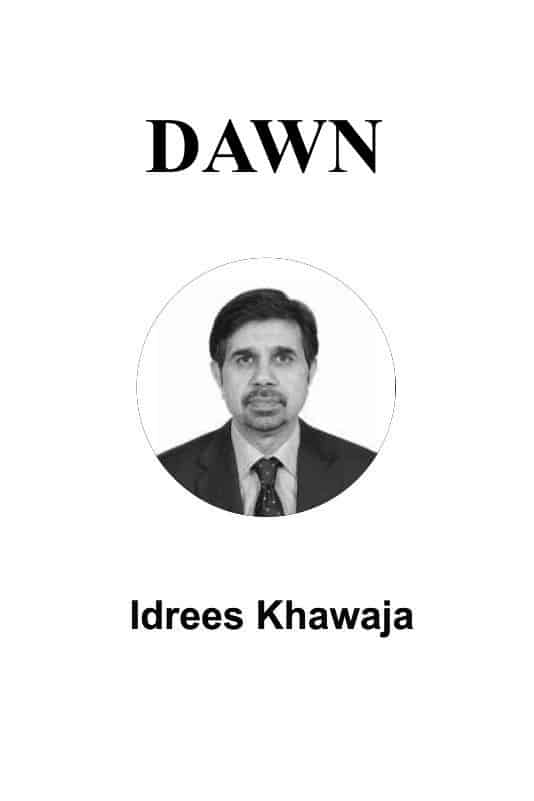
The election cycle
THE good news is that the consumer prices of petrol, electricity and gas are unlikely to significantly increase before the next general election, even if costs for the state increase. Despite exporters’ demands and economists’ advice, the government is unlikely to allow a significant devaluation of the rupee. Looking ahead, the bad news is that, post-election, increased prices and a noticeably depreciated rupee are both likely.This is the standard cycle economists refer to as the ‘political business cycle’ — the phenomenon of a spending spree in the pre-election period followed by post-election belt-tightening. Let’s call this the election cycle. The academic rationale is that, in an effort to get re-elected, outgoing governments (of whatever shade) spend more on vote-earning avenues at the end of their tenure. Voters’ memories being short, newly or re-elected incoming governments can afford to cut expenditures in the initial period of their tenure.Has Pakistan ever experienced an election cycle and, with some 18 months left for the current government, is another one likely? Given the figures, we did experience election cycles during the general polls of 2008 and 2013.From 2004-7, the average fiscal deficit was 4 per cent of GDP while the deficit rose to 7.6pc in 2008. Similarly, the average fiscal deficit was 6.1pc from 2009-12, but rose to 8.6pc in 2013. Given that revenues maintained an increased trend rate in the two election years, the rather high fiscal deficit speaks of a significant spending spree. How is more money spent nearer elections? Of course, some of it goes into hurried infrastructure projects — a road carpeted here, a street lined there. But money also goes into popular measures that benefit all and sundry.For example, prior to the 2008 election, domestic oil prices were held static at Rs51 per litre for almost 10 months even though the international price was rising. In 2008, in the six months prior to regime change the rupee depreciated only 3.6pc, while six months after it had depreciated by 30pc. And before the 2013 election, electricity prices remained unchanged for almost a year, even though the cost was rising. The rupee also showed relative stability — it depreciated only 1.3pc in the six months before the election compared to 6.7pc in the six months following the polls.Keeping oil or electricity prices static when costs are rising means subsidising consumers from the national exchequer — thus the increased expenditures and fiscal deficits in pre-election periods. The rationale is obvious: price increases will cause an inflationary spiral, annoying voters. Politically, such increases are not viable on the eve of an election.If underlying factors call for currency depreciation, then holding the rate static is costly for the country. To equate the supply of foreign currency with its rising demand, the central bank pumps foreign currency into the forex market, depleting its foreign reserves. As exports and remittances do not yield enough foreign currency to pay for our imports, we borrow dollars to recoup our reserves. This increases expenditure on debt servicing and has other serious repercussions for the economy.With potential regime change barely 18 months away, should we expect yet another election cycle? Going by the history of the past two elections, yes, we should! The exchange rate has shown a fair degree of stability until now. Even if the experts rightly counsel depreciation, going by the election cycle rationale, we should not expect the government to heed their advice when the general election is not so far off. Depreciation will produce an inflationary spiral that will annoy consumers at large, while non-depreciation continues to offend exporters and labour attached to the export chain. But consumers outnumber exporters and, therefore, pleasing consumers at the cost of exporters is the right political strategy.Should we expect a large depreciation of the rupee immediately post-election? Yes! If non-incumbents win, they will blame the ensuing inflation on the economic circumstances they inherited and try to tame inflation by the end of their term to win laurels from the public. Even if the incumbents are re-elected, significant depreciation cannot be ruled out — given voters’ memories, it’s logical to make tougher choices at the beginning of the term. For the same reason, prices of petrol, electricity and gas will not increase significantly pre-election, and rapid adjustments will follow post-election while riding the ‘mandate’ wave.During our spending sprees in 2008 and 2013, the IMF was not there to twirl a wand and maintain a 4pc fiscal deficit. But we asked them to return right after both elections. Once again, with the 2018 election around the corner, the IMF is gone. Post-election, will we ask them to return? History says yes. Let’s adopt policies that prevent history from repeating itself.



